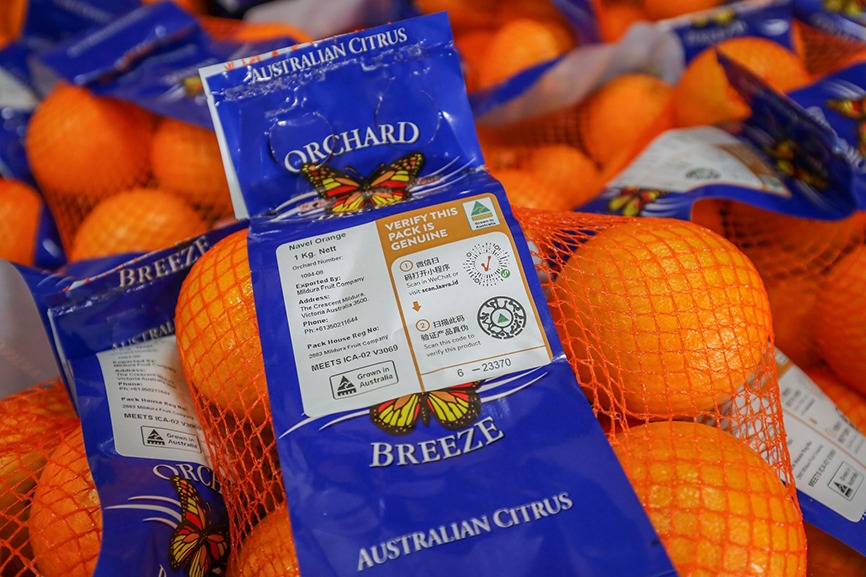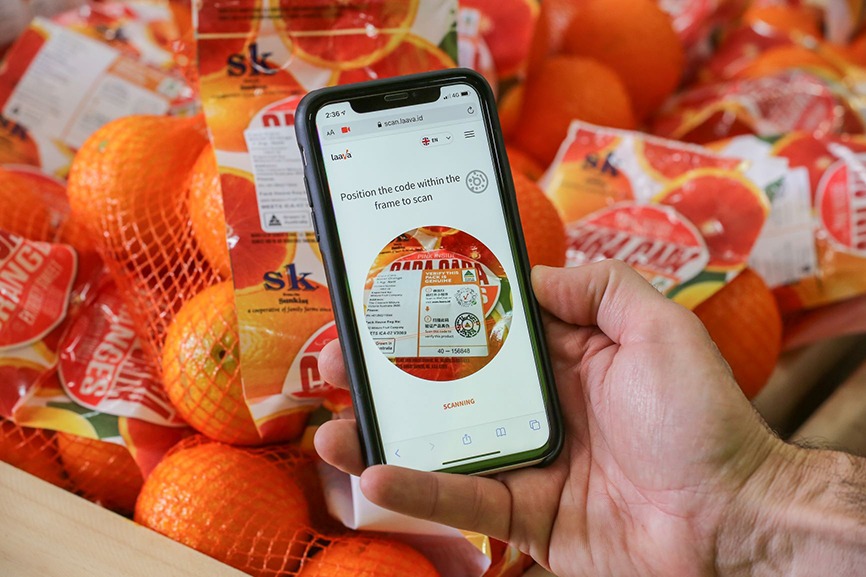Tracing tech puts squeeze on IP theft
A $200,000 trial of game-changing traceability technology for Australian citrus exports has seen more than 400,000kg of premium citrus fruit traced and verified from Mildura orchards in Victoria through to international retail markets.
A partnership between Agriculture Victoria and Citrus Australia and funded by the Victorian Government, the pilot traced fruit from Nu Leaf IP orchards in Mildura, through the Mildura Fruit Company packhouse and on to international consumers.
The pilot trial used digital fingerprint labelling developed by Laava ID and blockchain technology provided by Trust Provenance. Fruit was scanned at over 50 retail and wholesale locations by overseas consumers, allowing them to verify that the fruit is a genuine Victorian product and to view the journey from “tree to table”.

The Australian citrus industry produces more than 750,000 tonnes of citrus each year, and last year eclipsed the $500 million mark in exports. Citrus Australia CEO Nathan Hancock says the decision to lead the program that has the capacity to improve traceability in horticulture supply chains was one borne out of necessity.
“The scope and audacity of IP theft costs individual citrus businesses and the wider citrus industry millions of dollars every year,” Hancock says. “Our industry relies on the quality and safety of our produce here in Australia. We have a premium product in our export markets and we need to be able to prove to our end supplier the origin of our product.”

Nu Leaf IP General Manager Matthew Cottrell says growers invest significant time and resources planting premium varieties such as Tang-gold, a seedless mandarin variety.
“By using the digital fingerprint labelling on our packaging and our blockchain, it will help us protect our brands and will also allow the customer to directly access proof of origin and the features of our fruit,” he says. “For consumers, it gives them confidence that they’re buying a premium variety with the features they desire.”
Mildura Fruit Company sources fruit from about 140 growers in the Murray Valley region surrounding Mildura, with up to 85 percent of this exported to about 30 countries.
“In a typical season, we’ll pack about 90 million kilos of fruit,” says Perry Hill, Mildura Fruit Company General Manager. “It’s very important to understand where that fruit comes from and where it goes. The trial supplemented our existing systems, enabling us to track various packed items through to the end consumer. This technology will enable us to satisfy our customers that product they’re receiving is coming from a reliable source.”









